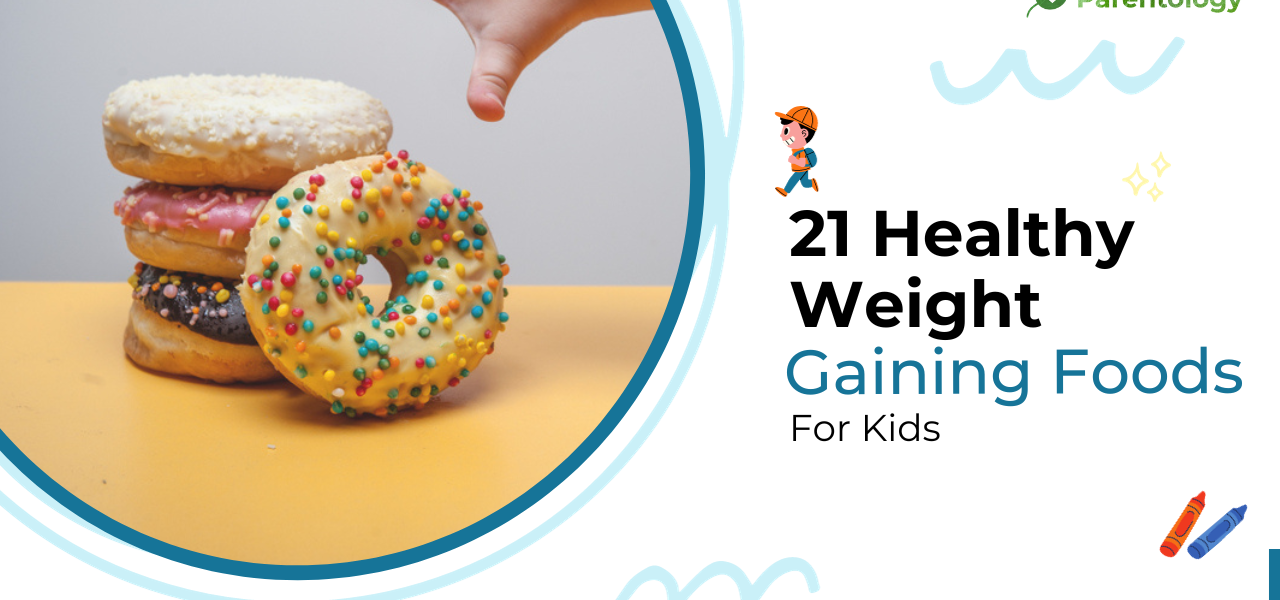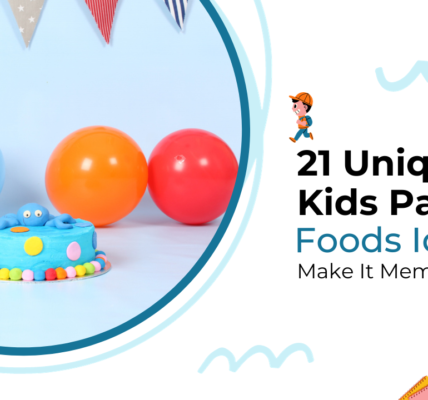How to Make a Child Gain Weight Fast: 21 Healthy Foods Guide
The journey to help your child gain weight can be both challenging and rewarding. In this comprehensive guide, we explore effective strategies and provide you with a list of 21 healthy weight-gaining foods for kids.
Understanding the Challenge
Children may need to gain weight for various reasons, such as underlying health conditions, picky eating habits, or simply a high metabolism. It’s crucial to approach weight gain in a healthy and sustainable way, focusing on nutrient-dense foods.
How to Make a Child Gain Weight Fast: Practical Tips
- Balanced Meals: Ensure your child receives a balanced diet with a mix of proteins, healthy fats, and carbohydrates.
- Frequent, Nutrient-Rich Snacks: Encourage snacking on foods like nuts, cheese, and yogurt between meals.
- Protein-Packed Foods: Incorporate lean meats, eggs, and legumes to boost protein intake.
- Healthy Fats: Include avocados, nuts, and olive oil for added healthy fats in their diet.
- Dairy Delights: Milk, cheese, and yoghurt are excellent sources of both calories and essential nutrients.
21 Healthy Weight-Gaining Foods for Kids
| Food | Benefits |
| Avocados | Rich in healthy fats and calories. |
| Nut Butters | High in protein and good fats. |
| Whole Milk | Packed with essential nutrients and calories. |
| Eggs | Excellent source of protein and vitamins. |
| Cheese | Calorically dense and rich in calcium |
| Greek Yogurt | High in protein and probiotics. |
| Bananas | Provide energy and essential nutrients. |
| Quinoa | Nutrient-dense whole grain with protein |
| Salmon | Omega-3 fatty acids for overall health |
| Sweet Potatoes | Loaded with vitamins and carbohydrates. |
| Trail Mix | A mix of nuts, seeds, and dried fruits for energy. |
| Granola | Calorie-dense with added nutrients |
| Hummus | Protein-packed and easy to snack on. |
| Chicken | Lean meat is essential for protein. |
| Lentils | Fibre- and protein-rich legumes |
| Dark Chocolate | High-calorie treat with antioxidants. |
| Oats | Nutrient-dense and versatile for meals. |
| Whole-Grain Bread | Healthy carbohydrates for sustained energy. |
| Dried Fruits | Portable and calorie-dense snacks. |
| Smoothies | Blend fruits, yoghurt, and milk for a calorie boost. |
| Potatoes | Versatile and rich in carbohydrates. |
Addressing Concerns and Monitoring Progress
It’s natural for parents to have concerns about their child’s weight-gain journey. However, it’s crucial to approach this process with patience and realistic expectations. Here are some additional tips and considerations:
Addressing Concerns:
- Consult with a Paediatrician: Before making significant changes to your child’s diet, consult with a paediatrician. They can assess your child’s overall health, identify any underlying issues, and provide personalised recommendations.
- Collaborate with a Nutritionist: A registered dietitian or nutritionist specialising in paediatric nutrition can offer valuable insights. They can create a customised meal plan tailored to your child’s nutritional needs.
- Emphasise Healthy Habits: Focus on building healthy habits rather than fixating solely on weight gain. Encourage regular physical activity, adequate sleep, and stress reduction.
Monitoring Progress:
- Regular Weigh-Ins: Schedule regular appointments with the paediatrician to monitor your child’s weight gain progress. Consistent tracking allows for timely adjustments to the approach, if needed.
- Keep a Food Diary: Maintain a food diary to track your child’s daily intake. This tool can help identify patterns, preferences, and areas for improvement in their diet.
- Celebrate Small Achievements: Acknowledge and celebrate small milestones in your child’s weight gain journey. Positive reinforcement can contribute to a healthy mindset around food.
Exploring Fun Activities to Encourage Healthy Eating
Making Mealtime a Joyful Experience
Ensuring your child gains weight doesn’t have to be a tedious process; it can be an enjoyable journey filled with fun and creativity. Let’s delve into exciting activities that not only promote healthy eating but also create memorable moments:
1. Cooking Adventures:
Engage your child in the kitchen. Allow them to participate in age-appropriate cooking tasks, fostering a sense of accomplishment. Create themed cooking nights or try making colourful, nutritious snacks together.
2. Food Art Creations:
Transform mealtime into an artistic adventure. Use fruits, vegetables, and other food items to create fun shapes and designs on your child’s plate. This not only enhances visual appeal but also makes eating more exciting.
3. Storytelling Dinners:
Weave stories around the foods on their plate. Turn broccoli into “mighty trees” and pasta into “little mountains.” Storytelling adds an element of imagination, making meals more engaging.
4. Family Picnics:
Take meals outdoors for a change of scenery. Whether it’s in your backyard or a nearby park, picnics add an element of novelty to mealtime. Pack a variety of healthy snacks and enjoy the fresh air.
5. Food Tasting Games:
Create a tasting game where your child gets to sample different foods blindfolded. This not only encourages adventurous eating but also adds an element of surprise and laughter to the dining experience.
6. Dealing with Picky Eaters:
Picky eaters can pose a challenge, but there are creative ways to overcome this hurdle. Introduce new foods gradually, offer a variety of textures, and involve them in meal decisions. Transforming vegetables into fun shapes or incorporating them into favourite dishes can make them more appealing.
7. Addressing Texture Sensitivities:
Some children have aversions to specific textures. Experiment with different cooking methods to alter the texture of certain foods. For example, if your child dislikes crunchy carrots, try serving them in a softer, cooked form.
8. Accommodating Dietary Restrictions:
If your child has dietary restrictions or allergies, it’s essential to find suitable alternatives. Consult with a healthcare professional or nutritionist to ensure their diet remains balanced and meets nutritional requirements.
9. Encouraging Hydration:
Adequate hydration is vital for overall health and can impact appetite. Ensure your child drinks water throughout the day. You can also include hydrating foods like watermelon and cucumber in their diet.
10. Making Mealtimes Enjoyable:
Create a positive atmosphere during meals. Limit distractions, engage in light conversation, and avoid pressuring your child to eat. Establishing enjoyable mealtimes contributes to a healthy relationship with food.
FAQs: How to Make a Child Gain Weight
Q: What are the main reasons for a child’s difficulty in gaining weight?
A: Explore potential health conditions, dietary restrictions, or picky eating habits.
Q: How can I make meals more enticing for a picky eater?
A: Experiment with different textures, colors, and involve your child in meal preparation.
Q: Are there any weight gain supplements for children?
A: Consult with a pediatrician before considering any supplements. Whole foods are preferable.
Q: Should I be concerned about excessive weight gain?
A: Monitor weight gain with a healthcare professional to ensure it’s within healthy limits.
Q: How can I make snacks more appealing and nutritious?
A: Combine favorite snacks with nutrient-dense options, creating a tasty and healthy mix.
Q: Can physical activity help in a child’s weight gain journey?
A: Encourage age-appropriate physical activities to stimulate appetite and overall well-being.
Q: Are there specific foods to avoid during a weight gain journey?
A: Limit sugary snacks and focus on nutrient-dense foods to promote healthy weight gain.
Q: How can I address emotional aspects related to weight gain?
A: Foster a positive and supportive environment, emphasising overall health rather than appearance.
Q: What role does hydration play in weight gain for children?
A:Ensure your child stays hydrated, as dehydration can affect appetite and overall health.
Q: When should I seek professional help for my child’s weight gain?
A: Consult with a healthcare professional if you notice prolonged or sudden changes in weight.
Conclusion: Nurturing Healthy Growth
In conclusion, guiding your child through a weight-gain journey involves a holistic approach that considers nutrition, emotional well-being, and overall health. By incorporating the suggested foods, tips, and monitoring techniques, you can create a supportive environment for your child’s healthy growth.
Remember, every child is unique, and progress may take time. Be patient, stay informed, and celebrate the positive changes along the way. For ongoing parenting insights and expert advice, continue exploring Parentology.co.




